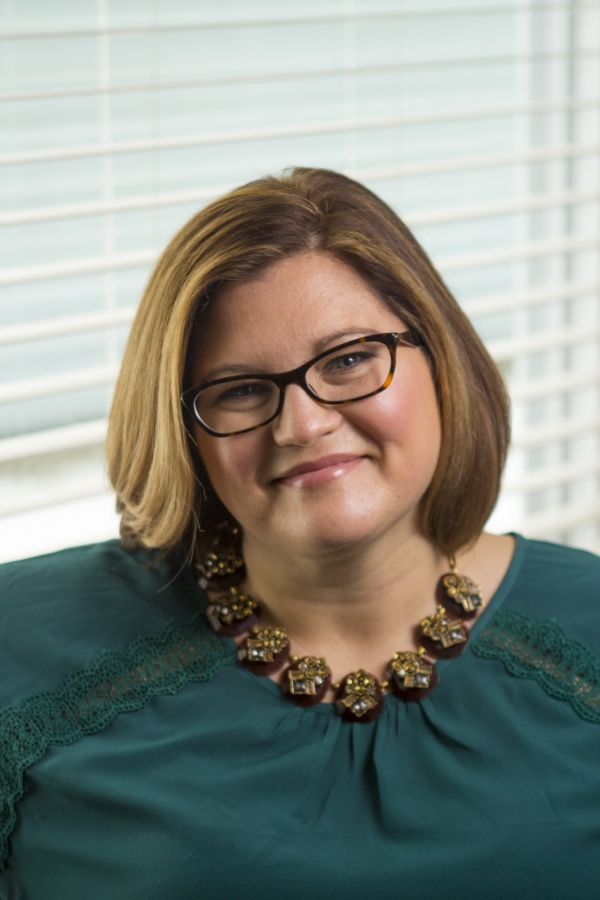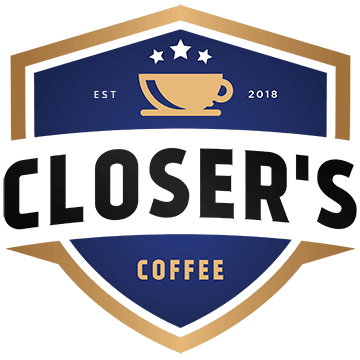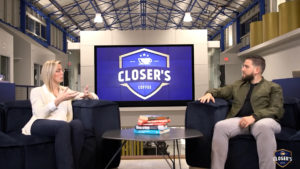 Amy Volas is a sales fanatic turned entrepreneur, bitten by the startup bug many moons ago and couldn’t imagine spending her time anywhere else. She created Avenue Talent Partners to help with the tremendous task of growing startups through one of their most valuable assets—salespeople. When she’s not working, she’s spending time with her cat, dog, and husband—in that order (jokes).
Amy Volas is a sales fanatic turned entrepreneur, bitten by the startup bug many moons ago and couldn’t imagine spending her time anywhere else. She created Avenue Talent Partners to help with the tremendous task of growing startups through one of their most valuable assets—salespeople. When she’s not working, she’s spending time with her cat, dog, and husband—in that order (jokes).
You can find her on LinkedIn and Twitter
“Sales is my first love. I’ve been in sales for 20 years and have done every job. I’ve scaled teams, done enterprise sales, and built something from scratch. The back half of my sales career was inside the HR tech and recruitment community. I was bitten by the startup bug many years ago and that’s my second business love. When I think of all the stuff I just described, there is an intersection that really became crystal clear that I needed to be a part of. When you think of startups and sales recruiting, many people struggle with that. Most struggle with it because they’re not hiring the right people, they churn them, and it’s very harmful for their business. All that I’ve seen there, along with what startups do right, and positive feedback from clients has always had an invaluable impression on me. I’m passionate about reminding people that we’re still talking about people. The bots still haven’t taken over. You can’t do your business without the people that help you scale it. We’re talking about people’s lives and careers. They’re not a widget. I work hard every day to show people that they can be successful inside of this business.”
How Do You Overcome Obstacles or Failure?
“For me, whether it was Yahoo or Indeed that I worked for, I always faced rejection. Anytime you’re swimming in the sales lane, rejection is going to be a big part of that. The thing that I live and die by is celebrating the small wins because not every day is going to be a big win. It’s a large opportunity to learn, grow, and to be the best version of yourself. It’s hard, but for me, it makes it easier because I will not do something unless I absolutely stand by it and believe in it. Even though someone tells me no, it’s usually not about me, it’s about their business or them not being able to connect the dots or it just not being the right solution. I don’t take it personally. It’s how you pick yourself back up and dust yourself off. If someone says no, it doesn’t mean it’s a permanent no it just means no for right now. That has served me incredibly well.
I’m trying to get this hashtag going viral on social media right now: #whatyouputiniswhatyougetout. Even with rejection, with 50 no’s but 2 yes’s, it’s still a win for me because I know I’m putting 100% in. People use the term “hacking” and anytime you “hack” something you will get some short-term success but those that stay and have longevity in sales have to put in sweat equity. It’s a rollercoaster but there’s no easy street to success.”
Do you have a role model that you look up to professionally?
“I grew up in the school of hard knocks when it came to sales. I didn’t have leadership, mentorship, or guidance and it was sink or swim. I’ve had many influencers and 2 big mentors in my life. But a lot of this comes from my own desire to understand the people that I look up to the most. What are they doing? Why are they doing it? How are they doing what they’re doing? I also look to the people that I don’t admire so much and it’s the same thing. I model after both. I’m an avid reader and currently reading 3 books. If it inspires creative thought, that’s all it takes. The biggest thing that helps me, though, is really listening to my clients and asking them questions.”
Amy’s Reading List:
When: Scientific Secrets of Perfect Timing
What’s the best sales team you’ve worked with? What made that team special?
“There’s one that stands out and I’m fortunate enough to still be working with them. Their sales leader embodies that success on a team starts from the top down and leadership sets the tone. He is equal parts coach, approachable, and he breaks down barriers to propel his team. He’s everything I admire and respect in sales leadership. It trickles down and his team would fall on a sword for him. They work harder because of him. Those are all ingredients for success.”
What advice would you give to someone just entering sales?
“Find the person on the team that you admire the most, spend a lot of time with them, be a sponge, ask a lot of questions, and understand what makes them tick. You want to model yourself off those who have repeatable and scalable success. You want to follow suit. You don’t want to pick up bad habits because you’re in the wrong crowd.”
Are there any trends that you’re noticing in sales?
“It’s like fashion where what is old is now new. People are talking about being human and personalizing your approach. That is the stuff that everybody has done forever. I think it’s more of a PSA than anything else. You have to understand to connect the dots and establish a meaningful relationship with your customers. I think it’s about getting back to basics.”
What’s the worst sales pitch you’ve heard recently?
“I actually just wrote about this on LinkedIn. I was an inbound lead for them. I loved the person that I talked to. He was equal parts personable without being over the top. He asked me great questions, listened to what I was saying, and fused it back into the conversation. I had no idea he was an SDR. We spent over 30 minutes on the phone. I got excited and wanted to learn more about the technology because it solved a problem for me. We set up a follow-up call and I thought it would still be with him. We got on the call and suddenly there was someone else on the call! This other person said “Why are we talking today? Tell me about your business?” Meanwhile, I was thinking “Are you kidding me?” I spent 30 minutes with this other guy and we had a great connection and, all of a sudden, you’re asking me the same questions that he asked me? Huge disconnect and a terrible handoff. The whole time was talking about the features and benefits that I couldn’t have cared less about and didn’t listen to me whatsoever. A week later, I found their biggest competitor and signed up with them. It was a completely different experience.”
How do you get your day started? Have any routines?
“I actually start the night before. I am as Type A as Type A gets. When the day ends, I make a list on pen and paper (yes, I have apps) and then I put it all in my Google Calendar. In the morning, the first thing I do (and this is terrible) is pick up my phone and I look at what I have to deal with and my priorities. I get into my desk about an hour and a half before anything is supposed to happen. I wrap my arms around how I am going to execute off of that list I made the night before. I think it’s about being super organized. I have a CRM system that I live and die by. I have my Google Calendar that I adore. I have apps that remind me of things. I make sure I have some kind of buffer in case the day goes wonky and takes me into different directions that I didn’t expect.”




